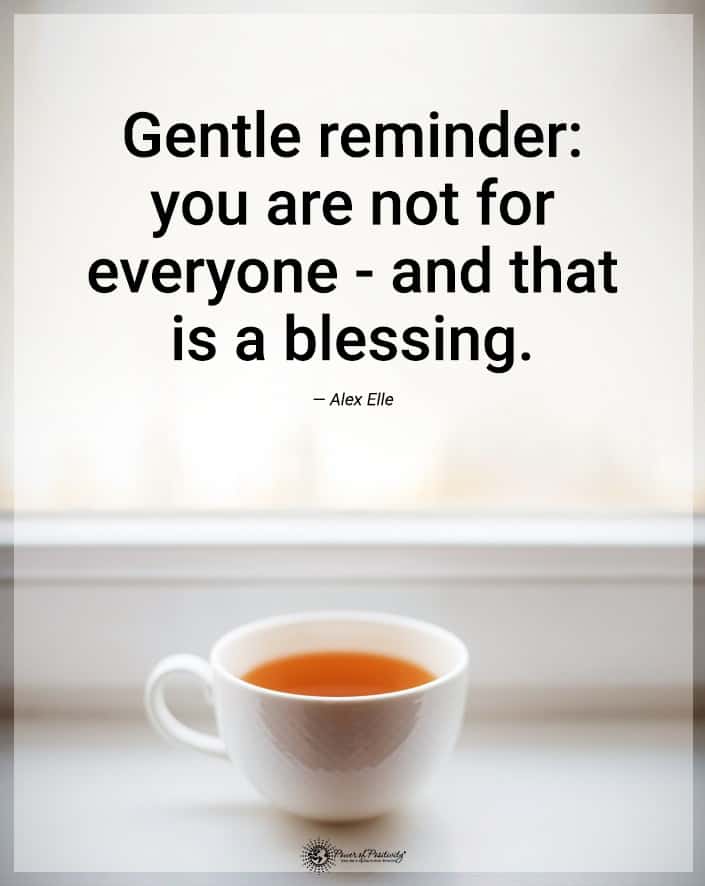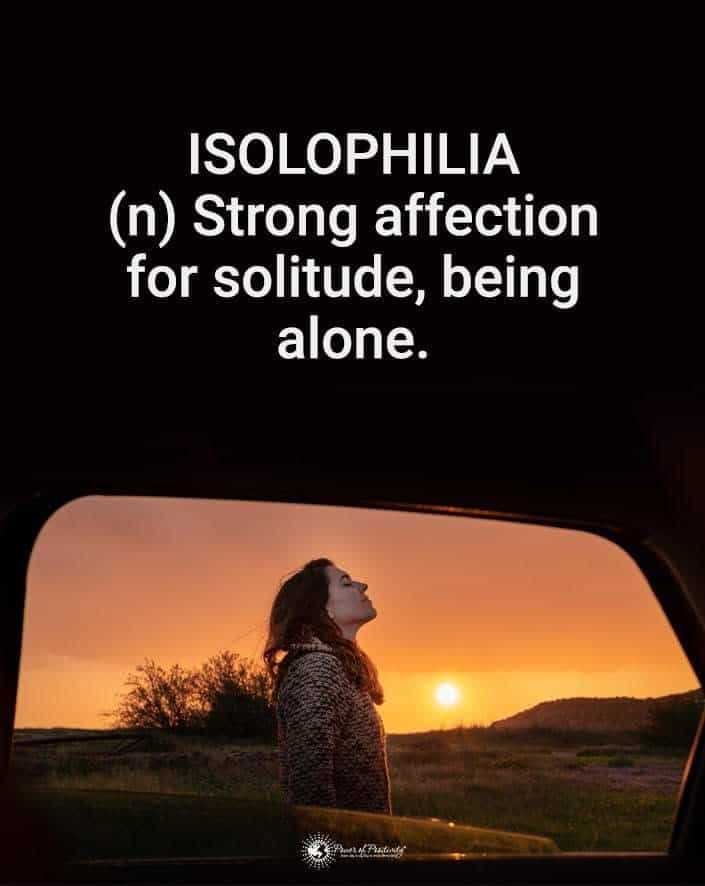Everyone knows people who aren’t social butterflies. For them, personal space is as vital as the air they breathe. Maybe you or your partner are introverted at heart.
Loners can enjoy lasting relationships just as well as extroverts, but the difference is that they often feel nervous and out of place in large groups. For them, spending one-on-one time with a spouse or a couple of friends is more appealing.
A recluse seldom relates well with others and has very few genuine relationships. They block others from their lives and prefer to be alone for good. Loners only need temporary solitude to recharge their batteries.
Twelve Signs Someone Needs Personal Space
Are you giving your reclusive partner enough space to thrive? It’s an essential part of their well-being. Here are twelve signs that your person may need some solitude and how you can help.
1. They Seem Moodier than Usual
Everybody has an occasional off day when they feel tired, grumpy, and unsocial. If they’re a loner, this sudden moodiness is often a sign that they need personal space. It’s especially noticeable if your friend or loved one is usually mellow and cheerful.
Just because your person is experiencing a bout of irritability doesn’t give them the right to take it out on you. While it’s easy to take their actions personally, allow some time apart so they can get back to their old self.
2. They’re Indecisive When Somone Encroaches on Their Personal Space
Whether you’re in a personal or professional relationship, both sides have opinions. Sometimes, your friend or family member may feel overwhelmed, and they’ll avoid the most basic decisions. When you ask for their opinion, they might say, “It doesn’t matter,” or “Whatever you want is fine.”
Loners don’t like to be put on the spot, even if they have a strong opinion. If they feel like they’re being smothered, they may go along with what you say to end the conversation. It’s one of their maladaptive tools to get some personal space.
You don’t need the burden of being the only decision-maker in the relationship. If your person is hesitant to offer an opinion, try to start small. Deciding where to have lunch or what to watch on tv one night puts the ball back into their court.
3. They Become Argumentative
Believe it or not, there is such thing as too much togetherness. When a friend or loved one is generally reclusive, they may find it difficult to tell you to back off some. Instead, they keep their anxiety bottled up, which may lead to bickering and picking arguments over the simplest things.
This is probably your cue to take a step back and give them some personal space. However, tell them that you’ve noticed the frustration lately and ask if they need to talk about it. Your introverted friend may open up and discuss why the two of you need some occasional alone time.
4. They Have Closed Body Language When You Invade Their Personal Space
Meaningful conversations include sharing thoughts and ideas and actively listening to the other person. Not only do people hear your voice, but they also read nonverbal cues provided by body language. Open body language is relaxed, friendly, and slightly bent toward the speaker.
When an introverted person needs some solitude, their closed body language will be your hint. According to an article published by Forbes, some of these subtle negativities may include crossed arms, crossed legs, or no eye contact. The person may be hearing you, but their body language says they aren’t listening.
Calling them out on their lack of interest can only make the situation worse. You’re better off staying calm about the issue and giving yourself some alone time. Meanwhile, your friend will get the space they need to revitalize and be more social again.
5. They Conveniently Change Their Daily Routines
Perhaps your friend or mate is such a creature of habit that you can set your watch by them. One of the many things loners like about solitude is that nobody’s there to interrupt their schedule. When they start to feel like you connect to them at the hip, they may suddenly change their routine.
You may notice that their sleep schedule may change to where they have some alone time in bed or at the breakfast table. They may also work later hours or stay gone later than usual when running errands. Your person craves this solitude and may feel too insecure to tell you.
If you want to improve your relationship, then pay attention to this silent hint. While you give the introvert the solitude they need, you can use some to revive your spirits. They will respect you more for allowing them this precious time.
6. They Feel Overwhelmed Due to a Lack of Personal Space
Yes, friends, family members, and partners need each other when life is unbearable. It’s exhausting trying to juggle responsibilities at home and work. Loners often do their best creative problem solving within their personal space.
Let your person know that you’re there for them. Tell them that you understand that they may need to be alone to sort out problems and solutions. Giving each other some space can be healthy for your relationship.

7. Notice Their Pattern of Solitude
When you’ve been in a relationship long enough with someone, you know their patterns. If your person is a loner, their need to escape the world can almost be anticipated. For example, they may need some quiet time.
Of course, it’s essential to pay attention to each other for a relationship to survive. However, there are times that your mate may need regular solitude to be more receptive to your needs. Soon, you’ll be in sync with each other’s patterns and can be more empathetic.
8. They’re More Sensitive Than Usual
Perhaps something that attracted you to your partner is that they’re susceptible. Their sensitivity can boost their creativity and empathy. Unfortunately, it can also make them anxious, self-doubting, and distrusting.
When they need some alone time, they may seem incredibly nervous and high-strung. The introvert may be extra sensitive to light and sound, and they’re easily agitated. They may be melancholy when they’re usually in a good humor.
Discuss their extra burst of sensitivity and see if it’s an internal conflict or its external circumstances. Give them a few hours or even a couple of days to revive by themselves. Then, get together and see how the time alone helped you both.
9. They Seem Distant When They Need Personal Space
Even the best of partners and parents need some alone time for their mental well-being. If your person isn’t getting the solitude they need, then they may become emotionally distant. Instead of spending quality time with you and your family, they may be lost in their thoughts and have little communication.
Give your person their space, and they’ll probably rebound after some alone time. If not, there could be some other problems in the relationship that need addressing. Only time and honest discussions can reveal the next step.
10. They Never Mention Solitude
Your person may not tell you how much they need alone time because they don’t want to hurt your feelings. No matter how many signs point to it, they may not broach the subject. Meanwhile, your relationship becomes strained.
You’re the one to address the elephant in the room. Let the introvert know that you understand the need for solitude and suggest ways to get it. It will help them be more open with their feelings and needs.
11. They Create Reasons to Be Alone to Get a Little Personal Space
It may be a red flag when your partner is more eager to run errands and work on solo projects. Even those few minutes alone in the car or the garage can be therapeutic for their mind and spirit. It’s their way of subtly getting some alone time without admitting it.
If they enjoy driving or doing projects on their own, let them do it. They’re creating the personal space they need while keeping their self-esteem intact. However, they should still want to spend a lot of quality time with you.
12. They Lose Their Individuality
Just because you’re in a loving relationship doesn’t mean you give up your individuality. You and your mate will still have individual hobbies and interests that the other doesn’t share. A loner who’s lost their individuality may forgo their thoughts and opinions and copy yours.
Don’t be intimidated when your partner wants to pursue a hobby or activity alone. It just gives you more time to explore things that you’ve wanted to do. Then, you’ll both have new ideas to share, and your time together will be more memorable.

Final Thoughts on Personal Space
These signs of needing personal space also may overlap with symptoms of depression. An article published by Psychology Today says that the tell-tale signs of depression are still different. Your person may need intervention if they’re battling depression rather than a lack of solitude.
It’s healing to spend time alone and reconnect. If your partner isn’t getting that time, you can help. The more space you give each other for private mediation and reflection, the better your communication and relationship.
The post Signs An Introvert Needs Personal Space: 12 to Watch For appeared first on Power of Positivity: Positive Thinking & Attitude.







